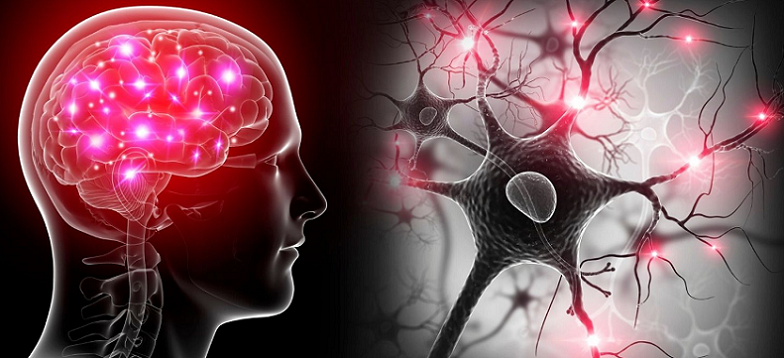
In today’s fast-paced world, the ability to adapt and learn is more crucial than ever before. One key factor that contributes to our brain’s adaptability is neuroplasticity — the remarkable capacity of our neural networks to change and reorganize throughout our lives. Here we delve into the fascinating world of neuroplasticity and explore how you can harness its power to improve your cognitive performance. By understanding and implementing strategies to enhance neuroplasticity, you can unlock your brain’s full potential, paving the way for a sharper, more resilient mind.
Contents
Understanding Neuroplasticity
In order to harness the power of neuroplasticity for better cognitive performance, it’s essential to first understand what it is and how it works. Neuroplasticity, also known as brain plasticity or neural plasticity, refers to the brain’s ability to change and adapt throughout an individual’s life by forming new neural connections, strengthening or weakening existing connections, and undergoing synaptic pruning. This dynamic process enables us to learn, remember, and adapt to new experiences, while also playing a crucial role in recovery from brain injuries and neurological disorders.
How Neuroplasticity Works
Whenever we learn something new or have a novel experience, our brain forms new neural connections. These connections, or synapses, are the junctions where neurons communicate with one another. The more we practice a skill or repeat an experience, the stronger these connections become, making it easier for us to perform the task in the future.
Alongside the formation of new connections, our brain also modifies existing connections in response to our experiences [1]. This process, called synaptic plasticity, involves the strengthening (potentiation) or weakening (depression) of synapses. When we practice a skill or engage in an activity repeatedly, the associated neural connections become stronger, leading to more efficient information processing and improved performance.
As we age, our brain undergoes a process called synaptic pruning, in which weaker or less frequently used synapses are eliminated, making room for more essential connections. This process is crucial for refining neural networks and optimizing brain function, ensuring that our cognitive resources are allocated efficiently.
Factors Affecting Neuroplasticity
Several factors influence the extent and nature of neuroplasticity in our brains. These factors can be broadly categorized into the following groups.
Age
While neuroplasticity occurs throughout our lives, it is most pronounced during early childhood when the brain is rapidly developing [2]. As we age, the capacity for neuroplasticity gradually declines, but it never ceases entirely. Older adults can still experience significant neuroplastic changes with the right stimuli and practices.
Genetics
Our genetic makeup can impact our baseline level of neuroplasticity, as well as our susceptibility to certain neurological conditions that may affect brain function. However, it is essential to recognize that genetics is not the sole determinant of neuroplasticity, and lifestyle factors play a significant role in shaping our brains.
Environment
Our surroundings and experiences have a considerable impact on neuroplasticity [3]. Enriched environments that provide ample opportunities for learning, exploration, and social interaction can promote neuroplasticity and enhance cognitive performance. Conversely, environments that lack stimulation or are highly stressful can impair neuroplasticity and hinder cognitive development.
Lifestyle
Our daily habits and choices, such as diet, exercise, sleep, and social interactions, can either support or impede neuroplasticity. Adopting a healthy lifestyle that promotes brain health is crucial for maximizing neuroplastic potential and maintaining optimal cognitive function throughout life.

Strategies for Enhancing Neuroplasticity
To optimize neuroplasticity and improve cognitive performance, it is essential to engage in activities and adopt habits that promote brain health. In this section, we’ll explore various strategies that can help enhance neuroplasticity, from cognitive stimulation to nutrition.
Cognitive Stimulation
Acquiring new skills and knowledge stimulates the formation of new neural connections and strengthens existing ones [4]. Consider learning a new language, musical instrument, or artistic technique to challenge your brain and enhance neuroplasticity.
Activities that require complex mental processing, such as puzzles, strategy games, or mathematical problems, can improve cognitive function and promote neuroplasticity. Regularly engage in such activities to keep your brain sharp and adaptive.
Cultivating problem-solving and critical thinking skills can enhance neuroplasticity by promoting the development of neural networks responsible for reasoning and decision-making. Engage in activities like debating, analyzing complex issues, or solving logic puzzles to stimulate these cognitive processes.
Physical Exercise
Regular aerobic exercise, such as brisk walking, swimming, or cycling, has been shown to improve cognitive function and promote neuroplasticity by increasing blood flow to the brain and promoting the production of neurotrophic factors, which support neuron growth and survival.
Strength training exercises, such as weightlifting or bodyweight exercises, can also benefit cognitive function by enhancing neural connections and improving overall brain health.
Combining physical movement with mindfulness techniques, such as yoga, tai chi, or qigong, can provide additional benefits for neuroplasticity by reducing stress and promoting relaxation, which can improve overall brain function [5].
Nutrition
A balanced diet rich in brain-boosting nutrients, such as omega-3 fatty acids, antioxidants, and B vitamins, can support neuroplasticity and cognitive function [6]. Incorporate foods like fatty fish, leafy greens, nuts, seeds, and berries into your diet to fuel your brain.
Adequate hydration is crucial for maintaining optimal brain function. Ensure you drink enough water throughout the day to support neuroplasticity and cognitive performance.
While a well-rounded diet should provide most of the necessary nutrients for brain health, certain supplements, such as omega-3 fish oil, curcumin, or ginkgo biloba, may provide additional support for neuroplasticity. Consult with a healthcare professional before adding any supplements to your routine.
Social Connections
Regular social interaction has been shown to improve cognitive function and promote neuroplasticity by stimulating the brain’s reward system and enhancing the production of brain-derived neurotrophic factor (BDNF), a molecule essential for neuron growth and survival.
Engage in activities that foster social connections, such as joining clubs, participating in group sports or classes, or volunteering in your community, to reap the cognitive benefits of social interaction.
Sleep
Sleep is critical for maintaining optimal brain function, as it allows the brain to consolidate memories, eliminate waste products, and repair neural connections. Poor sleep can impair neuroplasticity and hinder cognitive performance.
To support neuroplasticity and cognitive function, prioritize good sleep hygiene by establishing a consistent sleep schedule, creating a relaxing bedtime environment, and avoiding stimulating activities or substances (such as caffeine or electronic devices) before bedtime.

Techniques for Rewiring Your Brain
To fully leverage the power of neuroplasticity, it’s essential to adopt techniques that can effectively rewire your brain and enhance cognitive performance.
Mindfulness and Meditation
Mindfulness, the practice of being fully present and aware of one’s thoughts, feelings, and sensations, has been shown to improve cognitive function, reduce stress, and enhance neuroplasticity. Regular mindfulness practice can help rewire the brain by strengthening neural connections associated with attention, emotional regulation, and self-awareness.
Various meditation techniques can help cultivate mindfulness and promote neuroplasticity [7]. Some popular methods include focused attention meditation, body scan meditation, loving-kindness meditation, and open monitoring meditation. Experiment with different techniques to find the one that works best for you.
In addition to formal meditation practice, you can integrate mindfulness into everyday activities, such as mindful eating, mindful walking, or mindful breathing. By incorporating mindfulness into your daily routine, you can rewire your brain to become more focused, resilient, and adaptable.
Cognitive Behavioral Therapy (CBT)
Cognitive Behavioral Therapy is a form of psychotherapy that aims to improve mental health by identifying and challenging negative thought patterns and behaviors. CBT has been shown to effectively rewire the brain by promoting the development of new neural connections and altering the way we process and respond to information [8].
CBT can enhance cognitive performance by helping individuals develop healthier thought patterns, improve problem-solving skills, and cultivate emotional resilience. By challenging negative beliefs and adopting more adaptive ways of thinking, individuals can rewire their brains for better cognitive function.
While working with a trained therapist is the most effective way to experience the benefits of CBT, self-help resources, such as books, online courses, or apps, can provide valuable guidance for those interested in exploring CBT independently. Consider utilizing self-help resources to learn CBT techniques and apply them in your daily life to support cognitive performance.
Brain Training Games and Apps
Brain training games and apps are designed to improve cognitive function by targeting specific cognitive skills, such as memory, attention, or problem-solving. Some popular brain training tools include Lumosity, Elevate, BrainHQ, and CogniFit.
While brain training games can provide engaging and enjoyable cognitive stimulation, their effectiveness in enhancing cognitive performance is still a subject of debate. Some studies suggest that the improvements gained from these games are task-specific and may not necessarily translate to real-life cognitive performance. Nevertheless, these games can still serve as a fun and accessible way to engage in cognitive stimulation.
To maximize the benefits of brain training games, choose tools that are evidence-based, target multiple cognitive domains, and offer personalized training programs. Combine brain training games with other strategies, such as physical exercise, proper nutrition, and mindfulness practices, to support optimal neuroplasticity and cognitive performance.
Nutritional Supplements That Benefit Neuroplasticity
While a well-rounded diet should provide most of the necessary nutrients for brain health, certain nutritional supplements have been suggested to benefit neuroplasticity and cognitive function. Some supplements thought to benefit neuroplasticity include the following.
Lion’s Mane Mushroom
Lion’s Mane Mushroom (Hericium erinaceus) is a medicinal fungus that has been used in traditional Chinese and Japanese medicine for centuries. It is believed to have various health benefits, including supporting cognitive function and promoting neuroplasticity [9]. Here’s how Lion’s Mane Mushroom might benefit neuroplasticity:
- Nerve Growth Factor (NGF) production: Lion’s Mane Mushroom contains bioactive compounds, such as hericenones and erinacines, which have been shown to stimulate the production of nerve growth factor (NGF) in the brain. NGF is a protein that plays a crucial role in the growth, maintenance, and survival of neurons. By promoting NGF production, Lion’s Mane Mushroom may support the development of new neural connections and help maintain existing ones.
- Neurite outgrowth: Neurite outgrowth is the process by which neurons extend their axons and dendrites to form new connections. Studies have suggested that the bioactive compounds in Lion’s Mane Mushroom can promote neurite outgrowth, thereby facilitating the formation of new neural connections and enhancing neuroplasticity.
- Synaptic plasticity: Synaptic plasticity is the ability of synapses, or connections between neurons, to strengthen or weaken over time in response to changes in their activity. Research indicates that Lion’s Mane Mushroom may improve synaptic plasticity, potentially contributing to enhanced learning, memory, and cognitive function.
- Neuroprotection: Lion’s Mane Mushroom has antioxidant and anti-inflammatory properties, which may help protect neurons from damage caused by oxidative stress and inflammation. By supporting neuronal health, Lion’s Mane Mushroom could indirectly promote neuroplasticity and cognitive function.
- Cognitive function: Some studies have suggested that Lion’s Mane Mushroom supplementation may improve cognitive function, including memory, attention, and concentration. These improvements in cognitive function may be related to the mushroom’s ability to enhance neuroplasticity, although further research is needed to fully understand this relationship.
Acetyl-L-carnitine
Acetyl-L-carnitine (ALC) is an amino acid derivative that can cross the blood-brain barrier and plays a role in various brain functions. It has been suggested that ALC might benefit neuroplasticity through several mechanisms [10]:
- Energy metabolism: Acetyl-L-carnitine plays a crucial role in cellular energy metabolism, particularly in the mitochondria, which are the powerhouses of the cell. ALC helps transport fatty acids into the mitochondria, where they can be converted into energy. By supporting energy production in brain cells, ALC may help maintain proper neuronal function and promote neuroplasticity.
- Neurotransmitter production: Acetyl-L-carnitine is involved in the synthesis of the neurotransmitter acetylcholine, which plays a significant role in learning, memory, and overall cognitive function. By supporting the production of acetylcholine, ALC might contribute to enhanced neuroplasticity and cognitive performance.
- Neuroprotection: Acetyl-L-carnitine has antioxidant properties that may help protect neurons from damage caused by oxidative stress, a factor that can impair neuroplasticity. Additionally, ALC has been suggested to exhibit anti-inflammatory effects, which could further contribute to neuronal health and support neuroplasticity.
- Synaptic plasticity: Some studies have indicated that ALC may positively influence synaptic plasticity, which is the ability of synapses to strengthen or weaken over time in response to changes in their activity. Improved synaptic plasticity can contribute to better learning, memory, and overall cognitive function.
- Age-related cognitive decline: Acetyl-L-carnitine has been studied for its potential to alleviate age-related cognitive decline. Some research suggests that ALC supplementation may improve cognitive function in older adults by supporting neuroplasticity, energy metabolism, and neurotransmitter production, although more research is needed to confirm these findings.
Phosphatidylserine
Phosphatidylserine (PS) is a phospholipid found in high concentrations in the brain and is an essential component of cell membranes. It plays a crucial role in maintaining the integrity and fluidity of cell membranes, which is important for proper neuronal function. Phosphatidylserine is believed to benefit neuroplasticity through several mechanisms [11]:
- Membrane fluidity: By maintaining and supporting the fluidity of neuronal cell membranes, phosphatidylserine ensures that essential nutrients, ions, and signaling molecules can be efficiently transported across the membrane. This process is vital for maintaining proper neuronal function, communication, and neuroplasticity.
- Neurotransmitter release: Phosphatidylserine is involved in the release of neurotransmitters, the chemical messengers that enable communication between neurons. By supporting the release of neurotransmitters, PS may help facilitate synaptic communication and promote neuroplasticity.
- Neuronal growth and survival: Phosphatidylserine has been suggested to play a role in promoting neuronal growth and survival, which is crucial for maintaining existing neural connections and forming new ones. By supporting neuronal health, PS might contribute to enhanced neuroplasticity.
- Synaptic plasticity: PS has been associated with improvements in synaptic plasticity, which is the ability of synapses to strengthen or weaken over time in response to changes in their activity. Enhanced synaptic plasticity can lead to better learning, memory, and cognitive function.
- Cognitive function: Several studies have suggested that phosphatidylserine supplementation may improve cognitive function, particularly in older adults and those experiencing age-related cognitive decline. These improvements in cognitive function may be related to the ability of PS to enhance neuroplasticity, although further research is needed to fully understand this relationship.
Omega-3 Fatty Acids
Omega-3 fatty acids, particularly EPA (eicosapentaenoic acid) and DHA (docosahexaenoic acid), are essential fats that play crucial roles in brain function and development. They are believed to benefit neuroplasticity through several mechanisms [12]:
- Structural component of cell membranes: DHA is a significant structural component of neuronal cell membranes, contributing to membrane fluidity, which is crucial for maintaining proper neuronal function and communication. Higher membrane fluidity supports better neurotransmitter release, receptor function, and nutrient transport, all of which can contribute to neuroplasticity.
- Synaptic plasticity: Omega-3 fatty acids, particularly DHA, have been shown to improve synaptic plasticity, which is the ability of synapses to strengthen or weaken over time in response to changes in their activity. Enhanced synaptic plasticity is associated with better learning, memory, and overall cognitive function.
- Neuroprotection: EPA and DHA have potent anti-inflammatory and antioxidant properties, which may help protect neurons from damage caused by oxidative stress and inflammation. By supporting neuronal health and reducing inflammation, omega-3 fatty acids can indirectly promote neuroplasticity.
- Neurogenesis: Omega-3 fatty acids, particularly DHA, have been suggested to promote neurogenesis, which is the process of forming new neurons. By supporting the growth of new neurons, omega-3 fatty acids can contribute to enhanced neuroplasticity.
- Brain-derived neurotrophic factor (BDNF): Omega-3 fatty acids have been shown to increase the levels of BDNF, a protein that plays a crucial role in neuron growth, survival, and synaptic plasticity. By promoting BDNF production, omega-3 fatty acids may further support neuroplasticity and cognitive function.
- Cognitive function: Several studies have demonstrated that omega-3 fatty acid supplementation, particularly DHA, can improve cognitive function, including memory, attention, and processing speed. These improvements in cognitive function may be related to the ability of omega-3 fatty acids to enhance neuroplasticity.
References
[1] Are New Neural Connections Formed When We Learn? Neuroplasticity & Neurogenesis
[2] Early Brain Development in Children
[3] Social influences on neuroplasticity: Stress and interventions to promote well-being
[4] How the brain changes when mastering a new skill
[5] The health benefits of tai chi
[6] 12 foods to boost brain function
[7] Synaptic Pruning: The Role of Brain Maintenance in Cognitive Health
[8] What is Cognitive Behavioral Therapy?
[9] Neuroregenerative Potential of Lion’s Mane Mushroom
[10] A review of current evidence for acetyl-L-carnitine in the treatment of
depression
[11] Why Is Phosphatidylserine a Top Brain Supplement?
[12] Omega-3 Fatty Acids and the Important Role They Play

